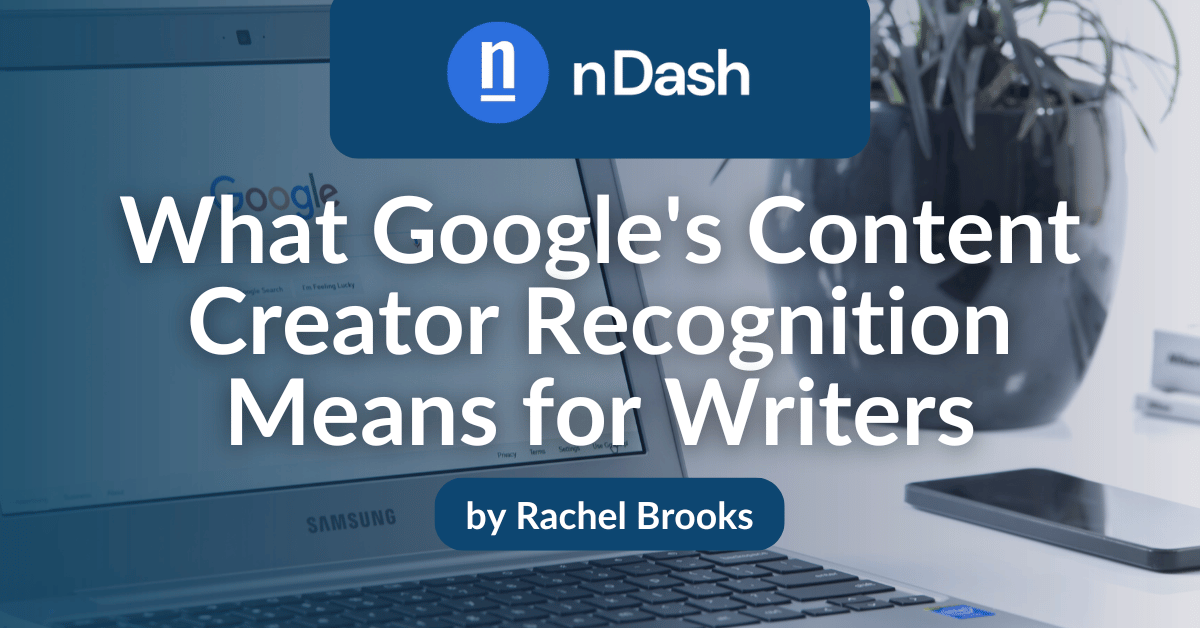Google’s new push to recognize a specific content creator as an expert brings benefits and challenges. For creators, benefits are authority recognition and SEO boosts. For content creation, in general, establishing author recognition is a safeguard for content quality.
However, challenges stem from the need to perform at a level that can exceed the algorithm’s demand and maintain a quality that rivals AI-led initiatives.
Demand for Knowledge Panels
Content creators feel that their long-deserved recognition is at least coming to fruition as Google’s Knowledge Panels initiative recognizes them as experts. Knowledge Panels refer to the little boxes of information summarizing a search subject that now appear at the top of a Google search results page.
When somebody Google searches a topic, a well-known creator’s content will have areas of expertise highlighted in their Knowledge Panel.
This, content creatives say, will drive awareness for the niche and services that content creators bring to the discussion. Possibilities open up around this new trend, but, as mentioned above, challenges mingle. Reaching the even stride where demand and opportunity are at equilibrium is key.
Dividing Results By Experience and Expertise With EEAT
To improve search results, Google’s new initiative groups results with valuable life experience content and expertise. Yoast explained that this is especially useful when searching for something that requires a degree to have recognized expertise status.
For example, suppose someone is looking for medical information. While health content about a new diet medication and the user’s experience trying it is helpful for the reader, it is not necessarily expert advice. An article published by a licensed dietician, however, explaining the medical benefits of the drug is considered expertise because the dietician is certified by peer review as an expert in that field.
Creatives Rise to the AI Age Challenge
It’s no secret that the rise of artificial intelligence has created a mix of challenges and opportunities for content creators. While generative AI can yield productive assistance to writers to help them create content at a faster pace, the abuse of AI tools has pulled down web content quality. Many professional content creators brace for impact with the poor reputation of AI-assisted content creation.
Genuine Over Generic, and Built for Speed
Brands soliciting content writers don’t want to pay creatives to outsource work to robots. They want a genuine human feel to written works, as well as genuinely human-vetted information.
Expertise and a well-cultivated niche of writing on select topics have always been an in-demand service for content writers, but the need for human-sourced subjects rises in an age of puff pieces generated by generic prompts. The New York Times called out a certain “perplexity” in the Google realm driven by the complex relationship content now has with generative AI, calling to the fore the constant need for human monitors on this information superhighway, traffic cops of fact-checking authority if nothing else.
From this need, experts of newly minted Google acclaim are pressured to rise to the challenge of producing thought leadership at the sonic burst amid the generative AI rush hour of contemporary Google traffic.
What Led to Google to Recognize the Value of a Content Creator
Generative AI Saturation and Content Quality
Unique content quality control problems rose from more recent content trends emerging from the popularity of tools such as ChatGPT. The accessibility of generative AI tools has led content saturation. Content created with a generative AI tool derives its data from internet available publications. Without genuine human generated research, AI-generated pieces often contain misinformation, or a general lack of uniqueness.
Google’s inspiration to create quality control stems from an evolutionary need in the current content climate.The CEO of CopyLeaks was quoted by R&DWorld in a September post referring to a the saturation of AI-led research content as “garbage AI” content.
Statistics for such generated content are staggering. A study by CopyLeaks found that this generated content has surged by 8,362% since 2022.
Google’s Past with Content Creators
A brief look into the history Google has with content creators highlights why this new shift is monumental. In approximately the 2010s, Google focused on algorithm changes and keyword specifics that regulated the style writers could adopt. Within the limitations of the system, content creators themselves were mostly on the periphery.
A Note on Keyword Stuffing
Content marketing managers often voiced concerns of “keyword stuffing” and pieces that were puffy with overuse of similar language and poor links forced in piecemeal to appease the algorithm demands. The creme of the crop for this era of content was recognized by website authority and publisher brand more than individual authors.
Changing Search Query Status
While keyword stuffing is still an issue today, and publisher brand is still important, the nature of algorithms and search methods has changed the status of a content creator.
Impacts of AI on Transition
The advent of artificial intelligence in boosting internet searches added dimensions to search engine dynamics. Using Natural Language Processing technology, NLP, Google has advanced its system to understand search engine queries with greater nuance and context than in the times mentioned before when keywords needed to be exact to target the right user.
What Expert Status Means for a Content Creator
Elevation to expert status holds promise for professional writers by providing increased authority as well as visibility for the individual’s platform. Much the same way that publisher authority was important in earlier forms of Google, individual authority is key to increase following and drive SEO.
Moving Forward With E-E-A-T
Now that the opportunity is within reach, content creators will brace for the changes in engagement dynamics. Preparing for anticipated and unexpected shifts is key to boosting E-E-A-T engagement status in a holistic way.
About the Author
 Rachel Brooks writes a variety of business articles and website copy on topics such as technology, computer software, marketing, advertising, and more. To learn more about Rachel or to have her write for your brand, sign up for nDash today!
Rachel Brooks writes a variety of business articles and website copy on topics such as technology, computer software, marketing, advertising, and more. To learn more about Rachel or to have her write for your brand, sign up for nDash today!
